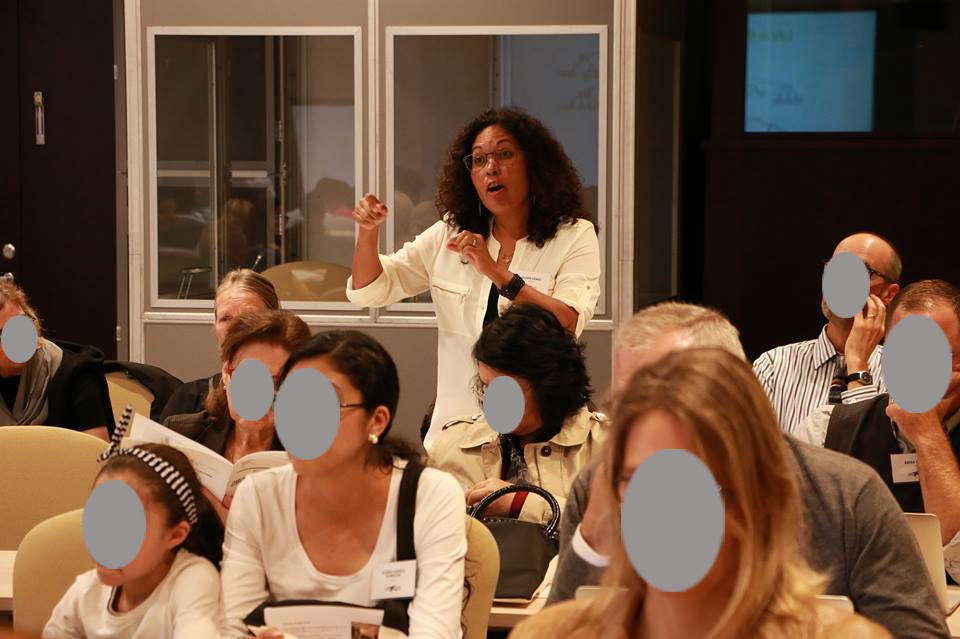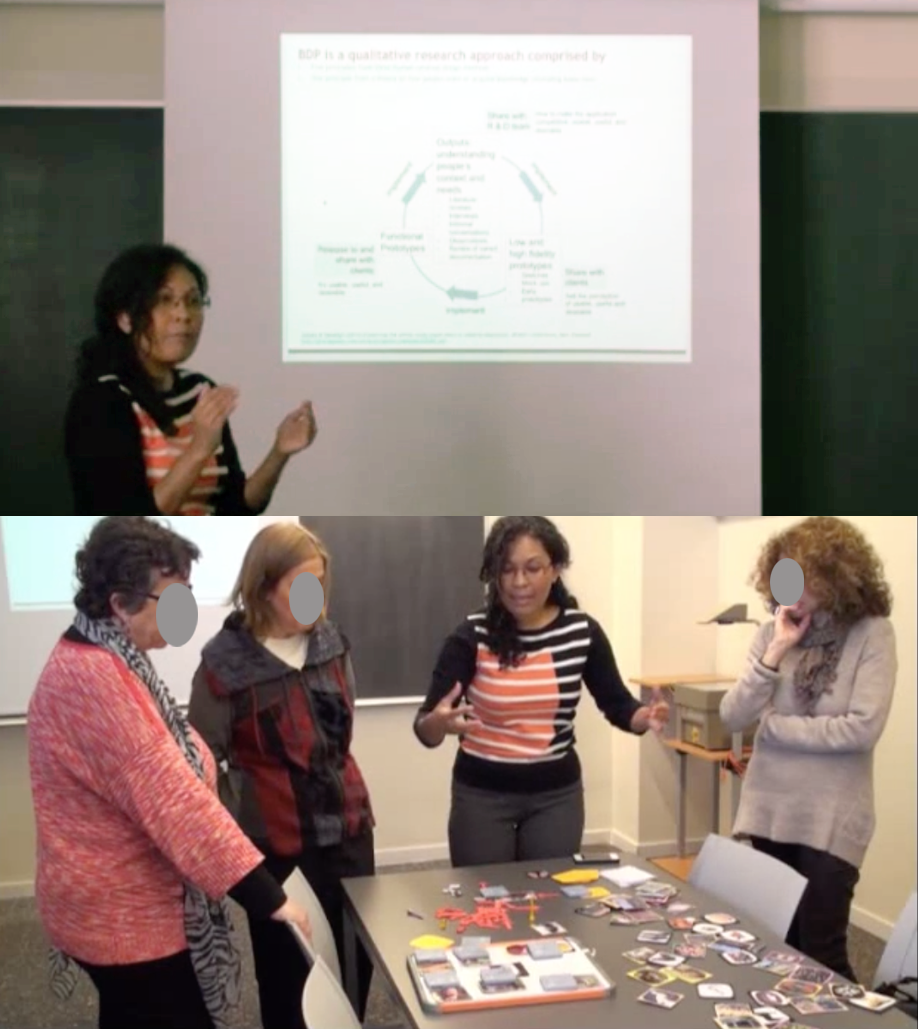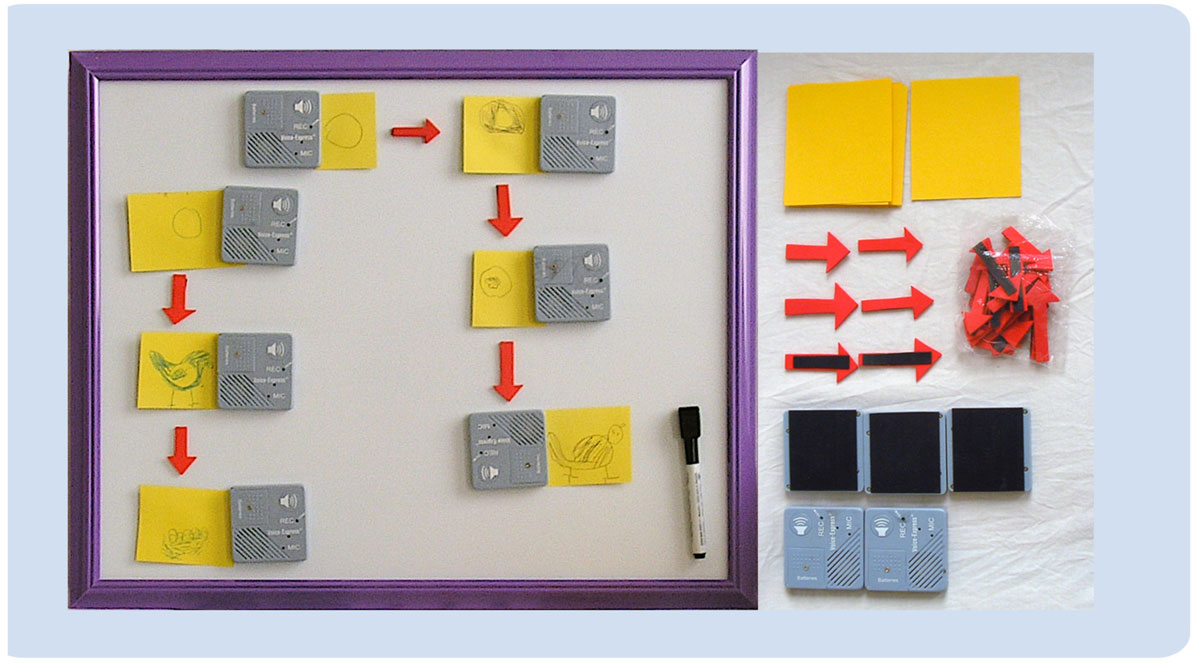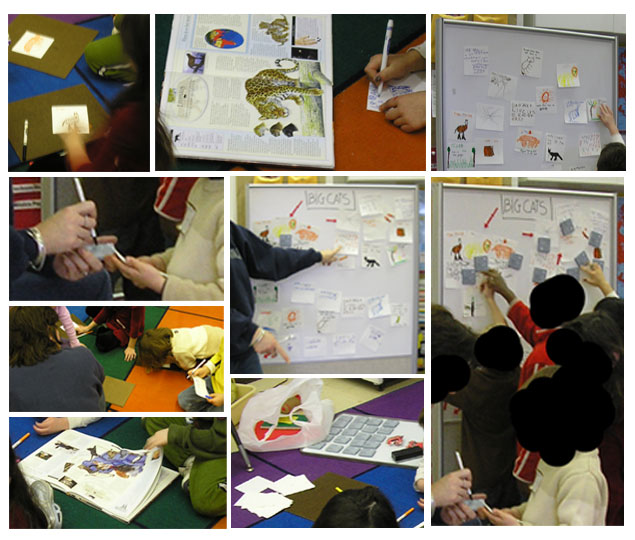Gloria Gomez, PhD / co-founder, strategist, researcher / about me / publications
Issues in Preschool Concept Mapping: An
Interaction
Design Perspective
Doctoral research (conferred in 2009)
Faculty of Design, Swinburne University of Technology, Australia
The Authoring Kit is comprised of familiar classroom materials and voice-recorders, an off-the shelf device. These materials were re-purposed or re-designed to scaffold and enhance children's physical and mental interactions with concept maps during individual and collaborative classroom activities.
This research sought to examine Joseph D. Novak’s claim that young children could quickly learn to make concept maps – a knowledge organisation tool that promotes meaningful learning. A theoretical account supporting Novak’s claim is that after age 3 children effectively communicate concepts with verbal language. Drawing from several disciplines(child learning and development plus concept mapping), I argued that concept mapping requires cognitive skills that preschoolers have not yet mastered: concept labelling and organisation with written language and hierarchy.To investigate Novak’s claim, I developed a prototype tool with scaffolding features that enable children to label concepts with verbally-labelled symbols, and enhance their control over concept organisation skills. Named the Authoring Concept Mapping Kit, the tool was developed using the Bridging Design Prototype Method, a by-product of this research, which is informed by several user-centred design methods and Ausubel’s constructivist theory of learning.
Case studies were performed in Australia and the US, where teachers adapted the tool for evaluating the conceptual knowledge of 4.6- to 6-years-olds during free-play time and science-related activities, while the researcher made participant observations. I examined the tool’s effectiveness by analysing child autonomy-related behaviours during map building. When promoted through teacher facilitation, map authoring disclosed particularities in children’s concept representation, stimulated active inquiry, meaning negotiation, and participation of preliterate, emergent writers, and two children with special needs.
Already tested outside my doctoral research by primary school teachers in the Netherlands (2012 - 2015) and a developmental psychology in the US (2008, 2009), this mapping tool has shown positive and promising outcomes in the promotion of child metacognitive skills and early literacy. Please review the publications below for details.
Events

Attending and presenting co-authored paper at CMC2016 in Estonia

2014 Talk at Universitat de Girona, Spain
Publications
- Kicken, R., Ernes, E., Hoogenberg, I., & Gomez, G. (2016). Improving the teaching of children with severe speech-language difficulties by introducing an Authoring Concept Mapping Kit. In A. J. Cañas, R. Priit, & J. Novak (Eds.), Innovating with Concept Mapping: 7th International Conference on Concept Mapping, CMC 2016 September 5-9, 2016, Proceedings (Vol. 635, pp. 112-127). Tallinn, Estonia: Communications in Computer and Information Science, Springer https://link.springer.com/chapter/10.1007/978-3-319-45501-3_9
- Gomez, G. (2010). Enhancing autonomy, meaning negotiation, and active inquiry in preschool concept mapping. In P. Lupion-Torres & R. C. Veiga-Marriott (Eds.), Handbook of Research on Collaborative Learning using Concept Mapping (pp. 383-401). Hershey: Information Science Reference, IGI Global. https://www.igi-global.com/chapter/enhancing-autonomy-active-inquiry-meaning/36305
- Concept mapping with 3- to 6-year olds to support meaningful learning. Childforum (electronic resource), 2010, http://bit.ly/gomez-childforum (commissioned)
- Gomez, G. (2006). An authoring concept mapping kit for the early childhood classroom. Paper presented at the Concept Maps: Theory, Methodology, Technology, Proceedings of the Second International Conference on Concept Mapping, San José, Costa Rica.http://cmc.ihmc.us/cmc2006Papers/cmc2006-p200.pdf
- Gomez, G. (2005b). Young childrens use of a voice-input device to transform their symbolic maps into concept maps. Our Children the Future 4 - OCTF 4. http://bit.ly/gomez-octf2004
Colleagues using the Kit
- Hoogenberg-Engbers, I. (2013, April). Concept mapping met kleuters / Leren communiceren op papier. Tijdschrift voor Remedial Teaching, 21, 20-24.
- Cassata-Widera, A. (2009) Concept Mapping with Young Children: From Representation to Metacognition, Peabody Research Institute, Vanderbilt University, VDM Verlag, 120 pages
- Cassata-Widera, A. E. (2008) Concept Mapping and Early Literacy: A Promising Crossroads. In Proc. of the Third International Conference on Concept Mapping.
Colleagues referencing this workSánchez Navalón, B., Gómez Ramos, J. L., Serna Rodríguez, R., Gómez Barreto, I.M. (2018) Concept maps as methodological instruments for hospital pedagogy in the long-term mental health units for youngsters. In Proc. of the Eight International Conference on Concept Mapping.
van Veen, P. (2014, April). Positieve resultaten met conceptmappen op Mgr. Hanssenschool. VHZ: Van Horen Zeggen, 6-7.
Birbili, M. (2006) Mapping knowledge: Concept maps in early childhood education. In Early Childhood Research & Practice, Vol. 8, No. 2 (Fall 2006). Versión en Español
Last updated: 25 January, 2026

